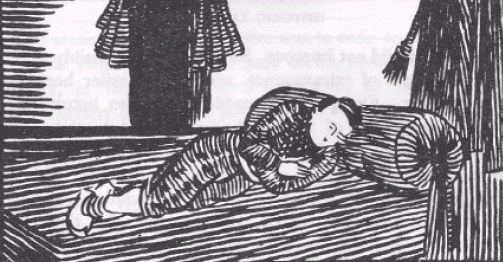Wazir Ali-Interloper
This is a collection of articles archived for the excellence of their content. Readers will be able to edit existing articles and post new articles directly |
This article was written in 1939 and has been extracted from
HISTORIC LUCKNOW
By SIDNEY HAY
ILLUSTRATED BY
ENVER AHMED
With an Introduction by
THE RIGHT HON. LORD HAILEY,
G.C.S.I., G.C.I.E.
Sometime Governor of the United Provinces
Asian Educational Services, 1939.
Wazir Ali-Interloper
1798
When ASAF-UD-DOULAH, fourth Nawab of Oudh, died in 1798, his continued extravagances were found to have left finances in a precarious condition. Two years before his death, Haider Beg Khan, his Prime Minister, had died. The Nawab, who cared nothing for administration or the welfare of his people, then allowed the state to lie at the mercy of any money-grabber who chanced along. Finally, in 1797 Sir John Shore visited Lucknow and persuaded the Nawab to appoint Tafazzul Hussain as his minister, a trustworthy and astute man who could be relied upon to do his best to pull things together.
A few months later Asaf-ud-Doulah died, leaving no legitimate heir. Many years before, however, he had bought a child named Wazir Ali whom he had brought up as his own son, but whom he had never taken the trouble legally to adopt. However, nobody seemed to regard this as a deterrent to his ascending the throne of Oudh. Not only did he do so, but he also obtained the consent of the Resident, Mr. John Lumsden, and of the Governor-General, Sir John Shore.
Wazir Ali turned out to be a man whose vices rivalled those of his adopted father. He had an uncontrollable temper which was easily aroused and greatly disliked English interference. During the coronation year, Tennant visited Lucknow, of which he remarked that the outskirts of the city and the areas far removed from the royal palaces were indescribably filthy and wretched.
For nearly three miles the main street was a sea of mud and filth, and really amounted to little more than a sewer, the centre twelve feet lower than the edges and too narrow to permit of more than one line of wheeled traffic. Vice, debauchery and poverty stalked the streets to the exclusion of prosperity; for only those who had the fortune to be attached to the court had any pretensions to wealth.
The Minister, Tafazzul Hussain, reported to the British, who had installed him in his post, that the scenes of debauchery were growing even more frequent since the accession of Wazir Ali. The result was that Sir John Shore himself again visited Lucknow to institute a thorough and careful inquiry into the reigning Nawab’s antecedents.
It was conclusively proved that he had no shadow of claim to the throne of Oudh and so four months after his accession he was deposed and sent to Benares. Wazir Ali is omitted from chronicles referring to the rulers of Oudh, and consequently his portrait does not hang with those of every Nawab and King of Oudh in the Taluqdars’ Hall in the Husainabad Park.
In his stead the Governor-General sent for Sa’adat Ali, a half-brother of Asaf-ud-Doulah, who had been living under British protection at Benares since 1776.

